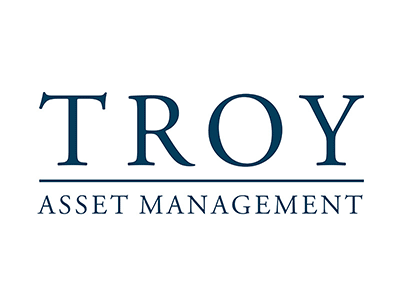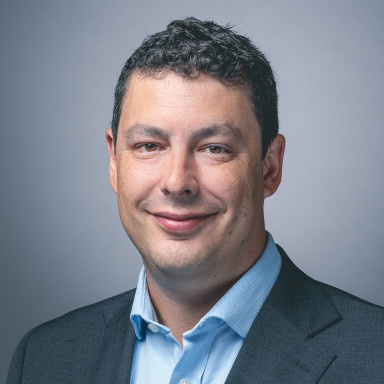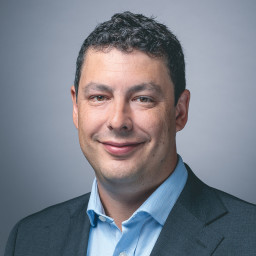- James Harries is a highly experienced income manager with an enviable track record
- Sheltering investors’ wealth when markets are volatile is the overarching focus of Troy’s approach
- The fund continued to experience less volatility than its peers, since launch in June 2016
- This fund is on the Wealth Shortlist of funds chosen by our analysts for their long-term performance potential
How it fits in a portfolio
Troy Trojan Global Income aims to deliver long-term income and capital growth. The manager aims to grow the income gradually over time rather than seeking higher but potentially unreliable yields, and focuses on high-quality companies. He believes investing for income globally is optimal as it provides a broader hunting ground than one country or region.
Given its focus on quality, this fund could work well alongside other investments in out-of-favour companies with recovery potential – also known as ‘value’ investing. It could also complement those targeting greater growth that don’t tend to pay dividends. Its global reach may also add diversification to an income-focused portfolio.
Manager
James Harries has managed this fund since launch in November 2016. He joined Troy in 2016 from Newton (BNY Mellon) where he managed global income funds from 2005 onwards. Harries is one of the most experienced global income managers around and we hold him in high regard.
In November 2020, Harries took over management of the Securities Trust of Scotland plc, a closed-ended fund (investment trust) that invests in a similar way to this fund. He’s also co-manager of the Ethical Global Income fund. Given the cross-over between these three portfolios we believe Harries is comfortably able to manage his time.
Tomasz Boniek supports Harries on his hunt for quality companies around the globe. He joined Troy from Susa Fund Management in 2017 and holds an MBA from the London Business School.
Process
Harries’ approach has all the hallmarks of a Troy fund – a focus on large, financially sound companies, that have shown their resilience through both good and bad times for the wider economy. He has scope to invest anywhere in the world but tends to favour developed markets, such as the US, Europe, and the UK. Although he can invest in higher-risk emerging markets, he tends to avoid them, preferring companies that sometimes sell their products in these regions.
His team pay close attention to free cash flow, a key measure of dividend sustainability. It shows what’s left over from running operations that can then be used for other purposes like paying a dividend, buying back shares, or reducing debt obligations. A company that generates healthy levels of free cash flow will, in theory, be able to sustain, or even increase how much they return to shareholders.
Every holding must pay a dividend, but the fund doesn’t have an income target. Harries is more focused on total return, a combination of income and growth, than income alone and won’t chase an unsustainable yield that is potentially damaging to long-term returns.
This is a concentrated portfolio of between 30-50 holdings. That means each company can have a significant impact on performance, although it’s a higher-risk approach. Sector-wise consumer staples, healthcare and technology are where the manager finds the most opportunity.
When making any investment, the long-term is at the forefront of the team’s analysis. They don’t tend to react to short-term blips in the stock market or wider economy, preferring a low turnover approach, which means new purchases and sales are kept to a minimum. Only a few new ideas are considered each year, and the manager only sells shares if he feels the outlook has changed, the company becomes too highly valued, or he finds a better idea elsewhere.
This was recently the case when the manager sold the British pharmaceutical and biotechnology company GSK to make way for Admiral Group, a UK-based car insurance business. The team believe Admiral’s expertise in underwriting leads to an extensive data set affording accurate pricing of risk. As such the company makes an underwriting profit over the cycle that leads to consistent profitability and limited capital requirements. The company can therefore pay a healthy reliable dividend, though remember dividends are never guaranteed. Texas Instruments was also added from the sale of Western Union. Texas Instruments is a leading manufacturer of analogue semiconductors. Texas Instruments designs and manufactures relatively “simple” chips that have incredibly long shelf lives compared to competitors. With no need to constantly design and manufacture new CPUs it eliminates some of the technology risk and means the business has relatively low capital intensity.
Investors should be aware that charges are taken from capital, which can increase the yield but reduces the potential for capital growth. The manager also has the flexibility to use derivatives which, if used, increases risk.
Culture
Troy Asset Management is an independent ‘boutique’ investment company. The majority of the business is owned by the managers and fund managers. We view this positively, as it means both the business and the funds are run with a very long-term view and managers’ interests are aligned with investors.
Sheltering investors’ wealth has always been the most important thing at Troy. The managers believe that’s the best starting point for growing wealth over the long term. All Troy funds are run along the same lines – disciplined and patiently investing in a small number of high-quality holdings. Managers of different Troy funds all contribute to the thorough research of around 200 companies deemed suitable for Troy portfolios, creating a collegiate environment.
ESG Integration
James Harries aims to identify and analyse factors which will impact the long-term profitability of a company, including environmental, social and governance (ESG) factors. They maintain close interaction with company management to ensure that they are taking their ESG commitments seriously. Although ESG is a consideration this is not an ESG fund and when looking at companies the overall risk return potential is considered more important.
Troy Asset Management has been formally incorporating ESG analysis into its investment processes for several years, and it came from a strong starting point. It has always been focused on the sustainability of returns and the fund managers are long-term investors. In recent years they’ve formalised the way they incorporate ESG and the way they talk to investors about it. ESG is integrated using a materiality-based approach, meaning the managers focus on the issues they deem to be most material. They also have access to third party ESG research.
Engagement and voting is the responsibility of the investment team. All votes are discharged and usually cast in favour of company management proposals unless the team believes investors’ interests are better represented by abstaining or voting against management. They generally prefer to speak with management, and give them the opportunity to change their approach, before casting a vote against. The firm publishes a summary of its ‘significant’ votes in its annual ‘Engagement and Voting Disclosure’ report, along with rationales for voting both in favour of, and against, proposals.
Cost
The fund is available for an annual ongoing charge of 0.90%. Our platform charge of up to 0.45% per annum also applies.
Performance
Our conviction in Harries stems from his long-term track record established during his time at Newton. Since launching this fund in November 2016, it has underperformed the peer group. It has returned 56.56%* vs 60.51% for the IA Global Equity Income sector average. Although it has underperformed it’s been one of the least volatile funds in the IA Global Income sector and we expect this to continue over the long term, though there are no guarantees. Remember past performance is not a guide to the future. All funds will fall as well as rise in value so you could get back less than you invest.
In keeping with Troy’s investment approach, Harries’ focus on high-quality companies means we typically expect the fund to hold up relatively well when markets are falling. In contrast, we expect the fund to lag the peer group when markets rise quickly.
Over the past 12 months the fund lagged the peer group by 6.13%, delivering a return of 0.74%. Its investments in Real Estate and Financials proved a headwind as well as having no exposure to Energy which has rallied over the past 12 months.
Stock-wise, investments in Vonovia SE and Boston Properties, both real estate investment trusts (REITs), detracted from performance. Their share prices have come under pressure as interest rates have increased significantly across the world. Higher interest rates have put pressure on the housing market and Real Estate and property companies have suffered. Nintendo has also detracted over the last 12 months. Investors are concerned that the company’s newest gaming console the ‘Switch Pro’, which is due to be released in 2023, will have lower demand than expected. Harries has been adding to Nintendo as he believes these fears are misplaced and believes the new console will feed both hardware and software sales.
It wasn’t all bad news though. Automatic Data Processing Incorporated and Hershey Company, the chocolate manufacturer was among the top performers. Hershey Company was able to pass on price increases to consumers to offset higher ingredient costs without demand being negatively affected. PepsiCo, the multinational beverage corporation was another notable contributor for similar reasons.
The fund’s historic yield was 3.2% as at end of February 2023, which is higher than the broader global stock market yield of 2.3%. Remember yields are variable and not a reliable indicator of future income.
| Annual percentage growth | |||||
|---|---|---|---|---|---|
| Feb 18 -
Feb 19 |
Feb 19 -
Feb 20 |
Feb 20 -
Feb 21 |
Feb 21 -
Feb 22 |
Feb 22 -
Feb 23 |
|
| Troy Trojan Global Income | 9.14% | 10.81% | 1.89% | 18.74% | 0.74% |
| IA Global Equity Income | 2.07% | 4.45% | 11.41% | 13.23% | 6.88% |
Past performance isn’t a guide to the future. Source: *Lipper IM to 28/02/2023.
Find out more about Troy Trojan Global Income, including charges
Troy Trojan Global Income Key investor information


